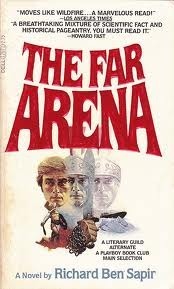What do you think?
Rate this book


508 pages, Mass Market Paperback
First published January 1, 1978
Even if Publius had my speed and strength and my perfect weapons and I but a club, still I would emerge alive. I had walked on arena sand, and Publius had not. ("Eugeni", Lucius Aurelius Eugenianus)
[H]e knew that good engineering did not have right angles in pipes.Then the isolated husband wondering why he had chosen his wife, instead of a hookup girlfriend from his distant past:
She had everything to recommend her but a heart. And yet that is the last thing a young man looks at.And the chip he carries on his shoulder, which may bring him down under its weight:
Oil men did not particularly like people who read books, nor did they trust them. Somehow Lew’s size, and his origins in a backwater Texas town, compensated for his reading.
Why is it people think the authorities are some form of gods with either great justice or great, cunning evil, rather than the same plodding fools they see in their daily lives, and most of all in their mirrors?And:
The purpose of an authority is to remain an authority, not dispense justice.
You call people ‘masses’ when you treat them as a lump, as a hundred slaves more or less, as an army if you will. Nobody ever knew a mass or loved a mass or even paid the respect of hating a mass.
...a man was a man because he thought, and all the cheers and all the illustrious parentage could not add one whit to any of his meaning.